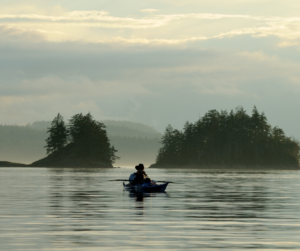
British Columbia’s coastline extends for over 30,000 km and is home to diverse eco-systems and communities. That’s why it’s so hard to believe BC is one of the only coastal jurisdictions in North America without a coastal strategy and law to protect it.
BC needs a blueprint for the coast to leverage and coordinate the work of provincial ministries, local communities, First Nations, and stakeholder groups to better manage and protect our coast.
BC needs a Blueprint for the Coast
We need to send the message to our provincial leaders that a comprehensive plan is vital to the future of the coast. A blueprint that will:
- Advance reconciliation in BC
- Coordinate engagement from other orders of government
- Establish a home for coastal issues within the provincial government
- Implement enforceable coastal and marine zone plans
- Signal to the world the importance of BC’s ocean and coastlines
Panel Discussions
Join us for a discussion on coastal habitat preservation, as we learn how these ecosystems support biodiversity, mitigate the impacts of climate change, and benefit coastal communities.
Plastic debris, contaminated shellfish, and immune-compromised killer whales – it’s no secret that BC is facing a marine pollution crisis.
British Columbia has one of the largest coastal jurisdictions in the world. Yet, BC does not have a comprehensive coast-wide strategy or law. That is why CPAWS-BC launched a campaign with our partners at the West Coast Environmental Law – Blueprint for the Coast.

Coastal-marine areas are vital to our identity, culture, and economy. The coast provides key habitat for vulnerable marine life, such as salmon and orcas. Additionally, ocean-based activities contribute $17 billion annually to the BC economy and employ over 170,000 people across coastal communities.
Coastal jurisdiction can be complicated to navigate. Under Canadian laws, all orders of government – Indigenous, federal, provincial, and local – have a role in coastal planning, management, and protection. Indigenous peoples have sovereign powers over their territories, therefore Indigenous laws are applicable as well. Without a blueprint, the gaps and overlap in coastal jurisdiction results in a fragmented approach to provincial coastal management.
BC has the opportunity to become a leader in coastal management and protection. We can build upon examples from other coastal provinces, states, and countries that have effective coastal management strategies and laws. In collaborating with communities, rights holders, and governments across BC, we can develop a meaningful blueprint for the coast.

 Many threats face the coast, including biodiversity loss, intensifying impacts of climate change, and increasing conflicts over resources. To make matters worse, we’ve inherited a jumble of regulations and laws overseen by different provincial ministries and departments. Without a coastwide plan that includes coordination between Indigenous, municipal, provincial and federal governments, issues will continue to be dealt with in an ad-hoc fashion, without considering the interaction of solutions and their cumulative effects.
Many threats face the coast, including biodiversity loss, intensifying impacts of climate change, and increasing conflicts over resources. To make matters worse, we’ve inherited a jumble of regulations and laws overseen by different provincial ministries and departments. Without a coastwide plan that includes coordination between Indigenous, municipal, provincial and federal governments, issues will continue to be dealt with in an ad-hoc fashion, without considering the interaction of solutions and their cumulative effects.


